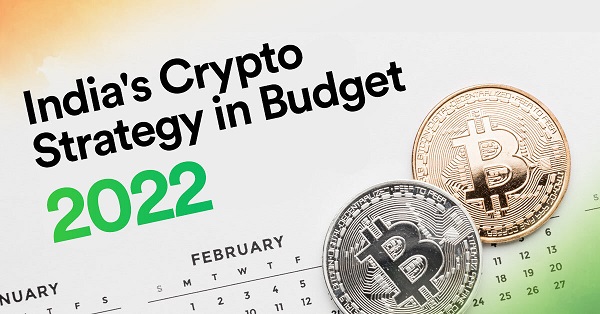Indian authorities have been cracking down on crypto ever since it became mainstream. Of course, the concerns were not misplaced. In a country as big as India, unregulated markets and activities have caused immense roadblocks in crypto’s development. At a stage where it was coping with the past losses, cryptocurrencies could have caused further damage to the country’s prospects. However, the authorities never saw blockchain technology as the problem—instead as a solution to many problems.
While the commercial applications of blockchain technology are many, its use in public systems can vastly outweigh the commerce. From supply chain management to identity and property records, this technology can be a game-changer for our society. And the government recognizes these facts. Thus, the Budget presented in 2022 aimed to resolve the many underlying problems without compromising on the opportunities.

“At first glance, the policies look counter-intuitive between taxes on digital assets and planning the digital counterpart of the Rupee on the blockchain. However, it is a statement that discourages the use of cryptocurrencies and other assets as payment methods while providing an alternative to it. Launching the Indian Rupee on the blockchain can be extremely advantageous for the country and its economy. And taxing the assets partly strengthens the idea of the national currency as the legal tender on blockchain-based channels as well.” commented Dev Sharma, founder and CEO of Blockwiz, a global crypto marketing agency.
Definitely, the shining star of the budget was the taxes laid down on all digital assets, encompassing everything that exists digitally. Noteworthy highlights of the taxing system are the taxes collected on the receiver’s end in case of gifts and no exemptions (tax offsetting) on losses in crypto assets. These are the major factors that’ll affect exchange, trading, and investments in crypto assets. This regulation on activities that had been the focus of the authorities, was made clear in statements by the Ministry of Finance and RBI in the last few years.
“Many countries considered launching their own currencies on blockchain but didn’t go through with it. So why should India? Well, Indians are about 17% of the world population which is an extremely strong user base for any cryptocurrency. Plus the direct connection of the currency to the real world economies will be a huge step for the blockchain industry as well as the country. It’ll certainly strengthen the Indian Rupee and its economy globally and across the board.” added Mr. Sharma of the Canada-based agency.
Global and more inclusive exposure to the Rupee can undoubtedly have its advantages. As a checkmate to the crypto problems, it’ll act as the foundation for the technology to grow in the country supported by legal infrastructure. Furthermore, as a masterstroke, it’ll broaden the reach and adoption of Rupee globally, bringing an influx of forex and opportunities. All-in-all, the budget presented looks to a positive developmental path for the country for its future eras.











